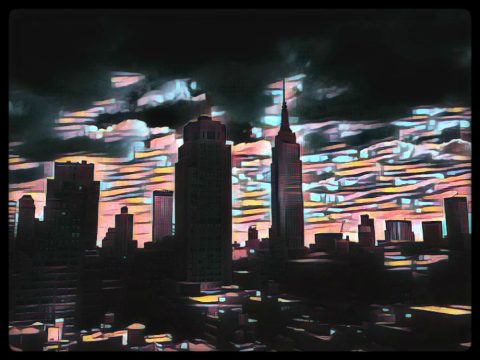I think this is a breakup story, but it’s a breakup story like none I’ve read before. Was part of your project to write about this type of loss in a new way? And how did this psychological triptych approach occur to you?
That’s a really intriguing read on this story, and I see when you’re coming from in terms of the way relationships coalesce and quickly disjoint throughout the three sections. When I was writing it (and even now) I suppose didn’t think of it as a traditional breakup, but there is definitely a strong sense of coping with loss, of trying to navigate from a place of half-understanding and personal incompletion.
I think it’s just part of the human experience to carry our loss with us—and it can either inform and enrich experience or create a sense of disorientation and lack of focus. This narrator, perhaps, gives loss too much power to shape her perception. So a breakup wasn’t a conscious part of my project, but I’m not surprised it’s there.
I’ve been writing a longer collection of tiny narratives, and it includes these. Originally each section of “The Ways of Getting Lost” was written as its own story. But I started playing around with how the different short pieces fit together and inform each other tonally or thematically. I put these three together because they all deal with somehow coming to terms with the limitations of reality as well as with isolation despite best efforts. I think each section resonates with the other and deepens the underlying themes/emotions.
The shoe at the end of the first section broke my heart. What is it about objects that allows something like a shoe to carry more emotional resonance than twenty pages of explication ever could?
I’m glad you felt that. Some objects are inherently meaningful because they serve as symbols or keepsakes, like a wedding ring, or a certificate. Other objects are so quietly vital to life that we almost forget about them when we have them. Everyone is expected to have shoes, especially in a public space. Maybe that’s why it can be so upsetting to see a poor child without them on the sidewalk, to see them hanging from a telephone wire, or to read Hemingway’s six-word story.
In a story, a simple, well-placed object can be powerful because we understand the weight of it, even if we don’t think about it that often. You can play with that expectation as an author. Objects go missing, or they appear. In this story, I’m interested in the loss of the essential, and what that means for someone’s identity and perception—when a shoe goes missing, or a home doesn’t feel like a home anymore, or a job disappears.
I felt transported by this story, and it made me wonder about you at your desk, cranking it out. What do you do to get ready to go so deep? Do you have any rituals for writing?
I wish I had rituals for writing, because then maybe I’d have some constancy in my writing schedule! I honestly don’t know what I do to get ready. I prefer to write in the morning before I start thinking too much about anything else. When I’m writing stuff like this story, I like my mind to feel empty and a little dreamy. I don’t write with music—the quieter and stiller the better—except I like to hear the birds. I drink coffee when I write. Sometimes before I get started I spend a couple minutes reading poetry or flash fiction that inspires me. It reminds me of how deep you can go as a writer, how emotionally honest you can be, how it all can be transmitted through image and language.
In most forms of dream interpretation, the house is seen as a model of the psyche. What is the house of your psyche like? Could you offer a little blueprint?
Oh, boy. That’s a wild question. The moment my house feels like a home, it’s under construction again. I want to travel away from it a lot, but its contents are becoming slightly more organized, and therefore more comfortable. There’s a hole in the roof where the next level’s supposed to be built, but usually it just lets in the weather and shows the sky. There’s a yard full of wildflowers and bugs, but I actually wish the whole universe could feel like a continuation of the yard.
What is it about the flash form that appeals to you?
The best flash fiction is deceptively simple. It explodes and expands in the mind—and it does it really quickly. I like how flash fiction asks so much of the reader, yet at the same time gives so much back. Images or ideas that might get lost in a longer piece get to shine and linger.
When it comes to my own writing, I find that it might be more palatable for readers to get this level of surrealism/magical realism in smaller doses. And on a more practical (and maybe selfish) level, I often don’t have as much time to write as I want, and I appreciate the faster satisfaction that comes with completing a work of flash fiction.



 The core workshop of SmokeLong Fitness is all in writing, so you can take part from anywhere at anytime. We are excited about creating a supportive, consistent and structured environment for flash writers to work on their craft in a community. We are thrilled and proud to say that our workshop participants have won, placed, or been listed in every major flash competition. Community works.
The core workshop of SmokeLong Fitness is all in writing, so you can take part from anywhere at anytime. We are excited about creating a supportive, consistent and structured environment for flash writers to work on their craft in a community. We are thrilled and proud to say that our workshop participants have won, placed, or been listed in every major flash competition. Community works.